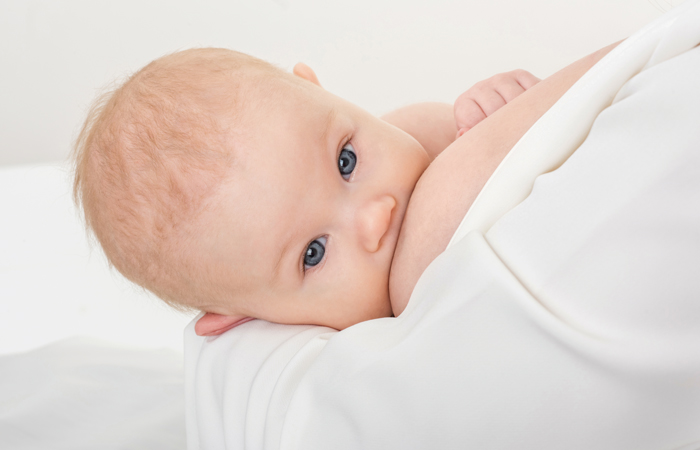Days of our lives
In Conditions
Follow this topic
Bookmark
Record learning outcomes
From conception to around the age of three years old – the first 1,000 days – is a crucial time in a child’s development. So what advice can pharmacy offer to help give children the best start?
By the age of three, a baby’s brain has reached 80 per cent of its adult size, and what happens in that time – from nutrition, protection from illness, exercise and life experience such as wellbeing and play – is crucially important. This is a vital message to communicate to families, as is offering support to women to ensure they have a healthy pregnancy and giving advice to parents after the birth of their baby.

The best start from day one
Conception marks day one of the first 1,000 days of life and preparation for this is key. However, a review of preconception health, published in The Lancet in 2018, suggested that most younger women in the UK are in fact not “nutritionally prepared” for pregnancy. Women planning to conceive can be encouraged to:
- Eat a balanced diet with at least five portions of fruit and vegetables a day
- Aim for a healthy weight
- Not smoke
- Reduce alcohol intake – advice in the UK is to not drink while trying to get pregnant
- Start taking a 400g folic acid supplement and for the first 12 weeks of pregnancy.
Achieving a healthy diet may be a challenge during pregnancy if, for example, women suffer from morning sickness. Having to ‘eat for two’ during pregnancy is a myth and a focus on the quality, rather than amount, of food is more important.
Notes on nutrition
Caring for a baby can be tiring, so looking after themselves is important for both parents, and particularly for breastfeeding mothers. The British Nutrition Foundation (BNF) states that new parents should “eat a healthy, varied diet, drink plenty of fluids and take some physical activity.” Breastfeeding women should be advised to drink around 10 to 12 glasses of fluid a day, rather than the usual eight glasses, and everyone – including breastfeeding women – is advised to take a 10 microgram supplement of vitamin D each day.
Breastfeeding has long-term health benefits for infants, which are likely to continue to adulthood, and the NHS says that the longer women breastfeed, the longer the protection lasts and the greater the benefits.
Breastfeeding is recommended for at least the first six months following birth, yet rates remain low across the UK. In Scotland, a national infant feeding strategy and support for mothers to breastfeed while in hospital has resulted in a rise in infants receiving some breast milk at six months from 32 per cent in 2010 to 43 per cent in 2017.
In a study by Liverpool University, 67 per cent of mothers who formula fed their baby said they felt guilty about the decision. However, the Royal College of Midwives’ has emphasised the importance of supporting mothers to make an informed choice about whether or not to breastfeed or bottle-feed their baby, depending on what is right for them.
Vaccinations need priority
Childhood immunisation has had a significant effect in improving the health of the population by reducing the potential spread of key diseases, including: tetanus, polio, pneumococcal infections, diphtheria, meningitis C, haemophilus influenza type b (Hib), whooping cough, measles, mumps and rubella. But some parents may not see the necessity of having their child immunised, may be concerned about vaccine safety or simply forget to attend when invited. This is where the pharmacy team can offer important information, advice and reassurance about vaccinations.
The first dose of the measles, mumps, and rubella (MMR) vaccine is offered to babies at one year old, and a second, to complete the protection, at just over three years of age. But in the UK, the uptake of MMR dropped for the fourth year in a row, according to statistics from NHS Digital published in September 2018.
This comes despite the warning from the World Health Organization that measles cases are rising in Europe and that the resurgence is “of serious concern”. People who have not had two doses of the MMR vaccine are at most risk, Public Health England (PHE) warns.
More positive results are however being seen from the recently introduced nasal spray flu vaccine, which is offered to all children in England aged two and three. Preliminary results from PHE in February 2019, suggest that the nasal spray is proving to be 39 per cent effective against the main flu strain circulating this winter and uptake has increased to 43 per cent of two-year-olds and 45 per cent of three-year-olds. Health secretary Matt Hancock commented: “More children have been vaccinated this year to protect against flu and it is a positive sign that the vaccine itself appears to be more effective than in previous years.”
Healthy toddlers

Research suggests that preschool children who followed baby-led weaning – allowing infants to feed themselves finger food from the beginning of weaning – are less likely to be overweight that those who were spoon fed and less likely to be fussy eaters, overeat or be overweight.
Ensuring a variety of foods across the food groups is key advice as children get older, suggests Helena Gibson-Moore, nutrition scientist at the BNF. Eight per cent of children under five in the UK do not have enough vitamin A in their diet, and families in lower income groups tend to have less vitamin C in their diet, according to the Scientific Advisory Committee on Nutrition.
“Toddlers and pre-school children are growing and developing quickly and it’s an important time to make sure they are eating well to get all the energy, calories and nutrients they need. This is also an important time for children to learn about food and eating, so that they get into the habit of consuming a healthy, varied diet, enjoyed with the rest of the family,” says Helena.
With better weather on its way, pharmacy teams can encourage families with young children to get out to play to increase their exercise levels. This is important, along with a healthy diet, even from an early age. National guidelines suggest that children should be encouraged to be active from birth and minimise the amount of time spent sitting. Children who can walk on their own should be physically active for at least three hours each day. This can include light activity such as standing up, moving around, rolling and playing, as well as more energetic activities like skipping, hopping, running and jumping.
Common health problems
There are many common ailments experienced by infants and young children and parents may well come into the pharmacy for advice.

Colic
To be classed as colic, an infant must display all of the following symptoms from birth to four months of age:
- Bouts of irritability, fussing or crying that starts and stops without obvious cause
- Episodes lasting three or more hours a day and occurring
at least three days per week for at least one week - No failure to thrive.
Symptoms can also include a red, flushed face and they may clench their fists, draw their knees up to the chest or arch their back.
The first bout of colic usually occurs within a few weeks of birth and episodes can continue until three to four months of age, or six months at the latest. Comforting the baby, winding them after feeds and ensuring they are upright during feeding to stop them swallowing air, may help.
Healthcare professionals may recommend a specialist infant formula milk. Further treatment is only necessary if parents are struggling to cope and if the baby is not feeding or not gaining weight. Concerned parents should speak to a pharmacist for further advice.
Constipation
A child may be constipated if they don't poo at least three times a week, if their poo is often large, hard and difficult to push out or if their poo looks like rabbit droppings or little pellets. Constipation can result from problems with diet, dehydration or illness and is more common in formula-fed babies. It can also be an indicator of cows’ milk allergy. Constipation is also common at two to three years of age while potty training. Parents should ensure the child has plenty to drink, a wide variety of foods, and enough physical activity. A GP may prescribe a mild laxative in severe cases if necessary.
Cradle cap
This is a skin condition, typically on a baby’s scalp, characterised by patches of greasy, yellow crusts, which flake and can make the skin look red, although it is not itchy. Parents can be advised to gently rub in baby oil, or a vegetable oil such as olive oil, to soften the crusts and wash the hair with baby shampoo. Hair may come away with the flakes, but it will grow back. Cradle cap can sometimes be confused with symptoms of eczema or scabies.
Diarrhoea
Diarrhoea – or loose, watery stools – is a cause for concern in babies, as they can quickly become dehydrated. Keeping their fluid intake up is important and oral rehydration treatments may help. Urgent advice is needed if a baby is lethargic, irritable, has a dry mouth, pale skin or sunken eyes and fontanelle. Diarrhoea in a toddler can be a cause for concern if they are also vomiting, the diarrhoea is very watery or has blood in it, or it lasts for longer than two or three days.
Eczema
Patches of dry, red and itchy skin can appear on the face, behind the ears and in the creases of the neck, knees and elbows. Most babies grow out of eczema, but it is skin condition that affects up to one in five children. Unperfumed moisturisers or emollients should be used and parents should avoid products or fabrics that can irritate the skin.
Nappy rash
Nappy rash is the result of exposure of the skin to urine or faeces. Parents should be advised to clean the skin and change the nappy every three to four hours, or soon as possible after wetting or soiling. Water or fragrance- and alcohol-free baby wipes should be used and the skin dried gently without rubbing. Soap, bubble bath, lotions or talcum power, which can all irritate, should be avoided. With a mild rash, a barrier preparation should be applied at each nappy change. A topical hydrocortisone 1% cream might be needed if the rash is inflamed.
High temperature
Fever is very common for young children and is often caused by a viral infection, such as a cough or cold. A normal temperature in babies and children is about 36.4°C, although this can vary slightly. A fever is usually considered to be a temperature of 38°C or above. Paracetamol can be given the babies from two months old, and ibuprofen to babies aged three months or over. Babies under three months with a temperature of 38°C, or 39°C between three and six months, should be referred to a GP.
Reflux
Bringing up milk (posseting) is very common for babies during or shortly after feeding and will usually stop by 12 to 18 months of age. It occurs because the valve at the top of the stomach has not yet developed properly, allowing the acidic contents to travel up the oesophagus. Babies who repeatedly bring up their food may have a more serious, long-term form of reflux.
NICE guidance for reflux states that if breastfeeding, a healthcare professional should review the mum’s technique and if formula feeding, a healthcare professional should review the baby’s feeding history and reduce the volume of milk, if excessive for the infant’s weight. They may also recommend a trial of smaller, frequent feeds, if appropriate, followed by a trial of thickened formula milk.
Teething
Most babies start teething around the age of six months and will have most of their milk teeth by the age of two years and six months. Common signs of teething include a red and sore gum, a flushed cheek and dribbling. Teething rings that can be cooled in the fridge (not in the freezer), and/or sugar-free paracetamol or ibuprofen, can help manage the teething pain. An oral pain relief gel, such as those containing lidocaine, may be used but should be age-appropriate.
